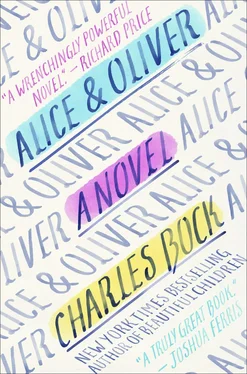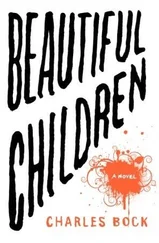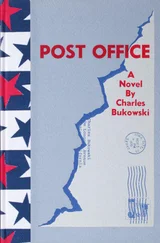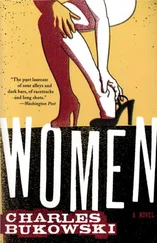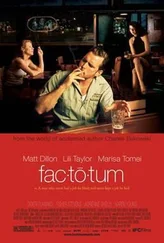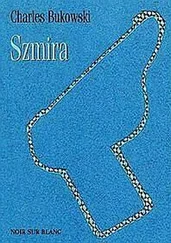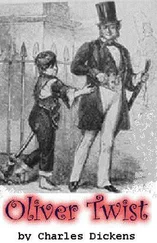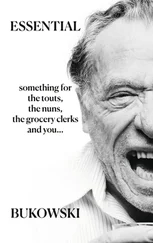Employees of the clinic received their insurance through a health management organization, whose contract contained a clause dictating that new members were only allowed to join on the first of the month. Therefore, the receptionist had to wait an extra three weeks before she could have any doctor’s appointment that would be covered by her company’s plan. Still she jumped through the requisite hoops and scheduled an appointment for the first day her insurance kicked in. Medical ethics forbade being treated by a doctor by whom she was employed. So, when the secretary finally confided her worries to a co-worker, the office referred her to a colleague.
From there things moved quickly. The receptionist was diagnosed with an aggressive stage two breast cancer. No word as to whether detecting it within the past four months would have kept it at an earlier phase — nobody wanted to think about that. A double mastectomy was scheduled, the first surgery date being available in mid-October.
Like any rational woman, she’d been aware that there was a month when all the pink ribbons appeared on blouses. But which month exactly? Not the kind of thing you paid attention to, until you had a reason. But in the weeks leading up to her double mastectomy, the receptionist noticed pink ribbons everywhere. Pinned to blouses. Adorning coats. One Saturday afternoon, while lounging on her couch and tuning in for the women’s finals of the U.S. Open, she noticed pink tennis balls in the commercials. She and her husband ate chicken wings and watched Monday Night Football, and she took in the pink cleats worn by the quarterbacks and running backs and wide receivers. The overpriced pink teddy bears in the gift shop next to her clinic. The pink donuts at the donut place. Special-issue pink lipstick and nail polish. Designer breast cancer T-shirts. Gloves. Scarves. Winter hats with that pink ribbon sewn onto them. Jewel-encrusted earrings in the shape of pink ribbons. Breast cancer awareness necklaces. Pink zippered tote bags. Umbrellas. Car magnets. Moist towelettes. The receptionist felt even more isolated, as if her suffering were somehow an electricity source — being plugged into, taken advantage of. Look, we are with you! Celebrate us for our support! Everyone so great and informed and aware and together and so helpful. Meanwhile, she had to get both of her breasts sawed off.
As luck would have it, her double mastectomy was scheduled on the day of the Breast Cancer Awareness Walk for the Cure. Who schedules a double mastectomy for a weekend? Her doctors said they got more time to work, a quiet environment, it was better this way.
Naturally, York was blocked off. Throngs along the sidewalk made it all but impossible to cross over toward the hospital. After coming up from the subway, she had to hail a cab, which was forced into a long, circuitous route.
In years to come, every year when she had to come in for her annual tests — which were best done to the exact day — she’d have the same problem. She’d come to hate that damn walk.
But the surgery got everything, and, knock on wood, the cancer did not return.
I would search every cloud
THE WOMAN AT the door to the loft was cheery. Dirty blond hair, streaked with gray, cascaded down beyond her shoulders, overwhelming a face that was at once hard, and gentle, and pretty. Greeting Oliver, her eyes glowed with the kind of peace and clarity that, Alice knew, came from profound daily meditation. Most likely, Oliver would declare that same glow a sign of psychotic insanity (each privately admitting that both possibilities could be correct). Specializing in massage, trauma therapy, and holistic healing, based somewhere in the Northeast, Sparrow had been recommended to Tilda as having achieved amazing results with cancer patients, and had come to the city after Tilda’s letters of unabashed pleading. Consecutive sessions during the early days of Alice’s consolidation had been relaxing enough to leave Alice in a state of excitement and bliss. That was before her arm had reclotted, creating the quarantine.
As if she were viewing the scene through a thin haze, Alice watched Sparrow bow slightly to Oliver, and tell him the arrangement had worked out perfectly, she’d gotten his message, hopped on the 9 train, and just walked over. It was such a gorgeous evening. Now Sparrow handed over a bouquet.
The gaffe registered: a healer unaware that fresh flowers could compromise an immune system. Precisely the kind of thing that would get Oliver mocking Sparrow’s legitimacy, Alice knew. But Oliver thanked her, asked if she could leave them outside. Speaking simultaneously to Sparrow and — Alice could tell — for her benefit, he said he knew how rough discharge days were, and he’d wanted to take care of Alice when she got home. Alice recognized the irony to his politesse, the hurt beneath his enthusiasm. But by then Sparrow had reached her, and was leaning in, all coconut oils and Eastern spices; Alice accepted the warmth of her embrace with as much appreciation as she could muster.
“It’s time,” Sparrow said. “Ready to begin?”
Alice blinked a few times, her eyes twinkling with kindness. Seconds passed before she gripped the edge of her sewing table. Forearm shaking, she pushed off, by which time Sparrow had managed to ease beneath Alice’s pits, and was lifting with her.
The bedroom purifier soon shifted into second gear; a compact disc broadcast the chirping birds and babbling brooks and wind rustling through trees that constituted an Amazonian rainforest; votive candles were lit; incense sticks burned. Alice lay facedown, her head resting on a side. She was asked to close her eyes.
Sparrow lifted Alice’s right foot off the bed and raised it. Hands that were hard and compact, powerful as a boxer’s, gently pushed Alice’s leg backward, testing. Sparrow similarly tested each of Alice’s limbs and joints, found the limits of their flexibility. She ran her fingers down Alice’s spine, kneaded the space between Alice’s shoulder blades with closed, hard fists, her knuckles pressing. Raised indentations along Alice’s back revealed the outline of her rib cage; Sparrow’s fingers made soothing runs. She scooted and sat at the base of Alice’s back, her weight pleasant on Alice. She pressed along Alice’s scalp, finding those points along the bottom ridge where the neck gave way to skull. Through a delicious veil of sleep, Alice vaguely heard the healer: “You have a brave and strong body. What a boon and friend this body is to you.”
—
If Alice died in her sleep, the way he figured it, Tilda would have to come and hustle the baby away, out to her apartment; although, if Tilda wasn’t answering her beeper, or couldn’t get downtown quickly, then it fell to Oliver’s cousin and his wife to jet over. This had all been arranged. Alice’s mom, if she was still in town, was a possibility, but Oliver assumed she’d be a wreck. He kept Tilda’s beeper number at the ready, and had purchased a second clunky Motorola — one just like his — for Jonathan. Smaller and lighter and slightly better looking than those bricks from the eighties, the phones weren’t going to win any kind of design contest, in fact were basically repulsive; people on the street universally gave Oliver shit looks when he used his, which was doubly humiliating, because reception was never better than spotty, anyway. But there was comfort in the theory that Oliver and his cousin — again, in theory — always could reach one another, that in a crisis he’d get ahold of someone . Only afterward would he contact a coroner. That was his plan. This way the baby would be protected: no chance the deepest part of her mind would get imprinted by the sight of Mommy being zippered.
Читать дальше
